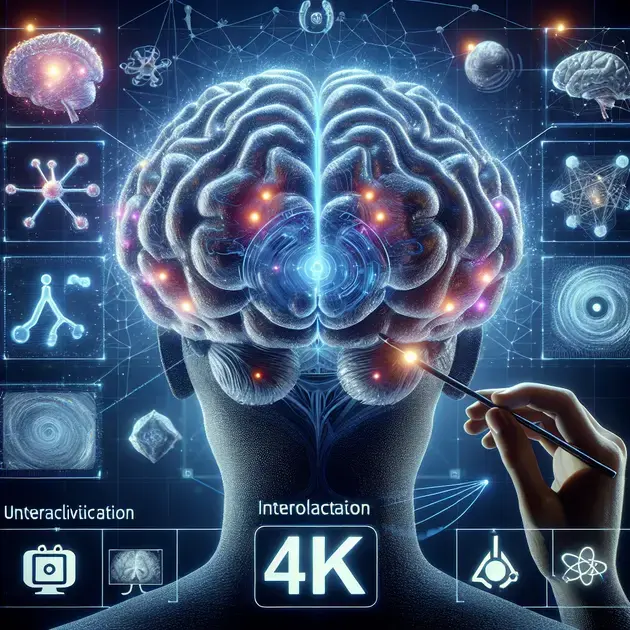The human brain is a complex organ that is responsible for various cognitive functions, with the cerebral cortex playing a crucial role in processing information. Understanding the intricate functions of the cerebral cortex is essential for gaining insights into how we perceive the world around us and make decisions. From sensory processing to higher-level cognitive functions, the cerebral cortex is a fascinating area of study in the field of neuroscience.
Recent research has shed light on the plasticity of the cerebral cortex, showing that it has the ability to adapt and reorganize in response to environmental stimuli and experiences. This neuroplasticity is crucial for learning, memory formation, and recovery from brain injuries. By delving into the essential aspects of the cerebral cortex, we can uncover the remarkable capacity of the brain to adapt and evolve throughout our lives.
Understanding the Anatomy of the Cerebral Cortex
The cerebral cortex is the outer layer of the brain, responsible for higher brain functions such as thought, language, and memory. Understanding the anatomy of the cerebral cortex is crucial in comprehending how different regions contribute to various cognitive processes.
To explore the anatomy of the cerebral cortex, one can utilize interactive 3D brain mapping tools such as Brain Explorer, available on the Allen Institute for Brain Science website. This tool allows users to navigate through different cortical regions and learn about their functions and connections.
Furthermore, neuroanatomy textbooks like “Neuroanatomy: An Illustrated Colour Text” by Alan R. Crossman and David Neary provide detailed explanations and illustrations of the cerebral cortex’s structure, helping individuals grasp the intricacies of its organization.
By studying the anatomy of the cerebral cortex through resources like Brain Explorer and specialized textbooks, individuals can gain a comprehensive understanding of the brain’s outer layer and its role in cognitive processing.
Exploring the Functions of the Cerebral Cortex
The cerebral cortex plays a crucial role in processing sensory information, motor function, and higher cognitive processes. Exploring the functions of the cerebral cortex involves delving into how different regions contribute to specific tasks and activities.
Platforms like Harvard University’s “Whole Brain Atlas” provide interactive tools and real brain imaging data to help users explore the functional areas of the cerebral cortex. By engaging with these resources, individuals can visualize how sensory information is processed and interpreted in the brain.
Additionally, brain mapping software such as MRIcron offers opportunities to interact with functional MRI data and observe the activation of different cortical regions during specific tasks. This hands-on approach enhances one’s understanding of the diverse functions of the cerebral cortex.
Through the utilization of tools like the Whole Brain Atlas and MRIcron, individuals can embark on a journey of discovery to uncover the intricate functions of the cerebral cortex and appreciate its role in shaping human cognition and behavior.
Unveiling the Neuroplasticity of the Cerebral Cortex
The neuroplasticity of the cerebral cortex refers to the brain’s ability to reorganize its structure and function in response to experiences, learning, and environmental factors. Unveiling the neuroplasticity of the cerebral cortex involves exploring how the brain adapts and changes over time.
Apps like “Peak – Brain Training” offer cognitive training exercises designed to stimulate different cortical regions and promote neuroplasticity. By engaging in activities that challenge memory, attention, and problem-solving, users can experience firsthand the brain’s capacity for change.
Furthermore, research articles from institutions like the National Institutes of Health (NIH) provide insights into the mechanisms underlying neuroplasticity in the cerebral cortex. Studying such literature enhances one’s knowledge of how neural connections are formed and modified in response to external stimuli.
By incorporating brain training apps like Peak and delving into scientific research on neuroplasticity, individuals can gain a deeper appreciation for the brain’s adaptive nature and the potential for lifelong learning and cognitive enhancement.
**
An Overview of Brain Plasticity
**
Brain plasticity, also known as neuroplasticity, refers to the brain’s ability to adapt and change throughout an individual’s life. This phenomenon involves the reorganization of neural pathways in response to learning, experience, or injury. In other words, the brain has the remarkable capacity to modify its structure and function in order to optimize performance and compensate for damage.
Research has shown that various factors can influence brain plasticity, including environmental stimulation, physical activity, and intellectual challenges. For example, engaging in activities that require problem-solving or creative thinking can promote the formation of new neural connections, leading to improved cognitive abilities.
Furthermore, neuroplasticity plays a crucial role in rehabilitation after brain injuries or strokes. By harnessing the brain’s adaptive capabilities through targeted therapies and interventions, individuals can restore lost functions and regain independence.
Understanding brain plasticity has significant implications for education, therapy, and overall brain health. By recognizing the brain’s capacity for change, we can tailor interventions and strategies to maximize learning potential and enhance cognitive resilience.
In conclusion, brain plasticity is a fascinating aspect of neuroscience that highlights the brain’s incredible ability to adapt and evolve. By embracing the concept of neuroplasticity, we can unlock new possibilities for growth, recovery, and optimization of brain function.
**
The Role of Neurotransmitters in Brain Function
**
Neurotransmitters are chemical messengers that play a crucial role in brain function by transmitting signals between neurons. These signaling molecules are involved in various physiological processes, including mood regulation, memory formation, and motor coordination. Imbalances in neurotransmitter levels can lead to neurological disorders such as depression, anxiety, or Parkinson’s disease.
Serotonin, dopamine, and norepinephrine are examples of neurotransmitters that impact mood and behavior. Serotonin, often referred to as the “feel-good” neurotransmitter, is involved in regulating emotions and sleep-wake cycles. Dopamine plays a key role in reward-motivated behavior and motor control, while norepinephrine is responsible for the body’s fight-or-flight response.
Additionally, the delicate balance of neurotransmitters in the brain is essential for overall cognitive function and mental well-being. Factors such as stress, diet, and genetics can influence neurotransmitter levels, highlighting the importance of maintaining a healthy lifestyle and seeking professional help when necessary.
Understanding the role of neurotransmitters in brain function can provide valuable insights into the mechanisms underlying psychiatric disorders and neurological conditions. By exploring the intricate interplay between these chemical messengers, researchers can develop targeted treatments and therapies to restore neurotransmitter balance and improve brain health.
In conclusion, neurotransmitters are key players in the complex network of the brain, influencing a wide range of behaviors and cognitive processes. By unraveling the mysteries of neurotransmission, we can pave the way for innovative interventions and personalized medicine approaches to support brain function and mental wellness.
**
Investigating the Effects of Stress on Brain Health
**
Stress is a natural response to challenging or threatening situations, triggering a cascade of physiological changes in the body, including the release of stress hormones such as cortisol and adrenaline. While acute stress can be beneficial in certain circumstances, chronic stress can have detrimental effects on brain health and overall well-being.
Prolonged exposure to stress can disrupt neuronal communication, impair cognitive function, and increase the risk of developing mental health disorders. Chronic stress is associated with structural changes in the brain, particularly in regions involved in memory, emotion regulation, and decision-making.
Moreover, stress can compromise the immune system and exacerbate inflammation, contributing to the onset or progression of neurodegenerative diseases such as Alzheimer’s and multiple sclerosis. By understanding the impact of stress on brain health, researchers can develop strategies to mitigate its harmful effects and promote resilience.
Various coping mechanisms, such as mindfulness practices, exercise, and social support, have been shown to buffer the negative consequences of stress on the brain. These interventions help regulate stress hormone levels, enhance neuroplasticity, and improve emotional well-being.
In conclusion, investigating the effects of stress on brain health underscores the importance of managing stress effectively to safeguard cognitive function and mental resilience. By adopting healthy coping strategies and seeking support when needed, individuals can protect their brain health and optimize overall well-being.
**
Conclusion
**
Brain plasticity, or neuroplasticity, showcases the remarkable adaptability of the brain throughout life. By restructuring neural pathways in response to various stimuli, the brain can optimize performance and recover from damage. Factors like environmental stimulation and intellectual challenges influence brain plasticity, highlighting its significance in enhancing cognitive abilities.
Neurotransmitters, such as serotonin and dopamine, are essential for mood regulation and cognitive function. Imbalances in these chemical messengers can lead to neurological disorders. Understanding their role provides insights into psychiatric and neurological conditions, paving the way for targeted treatments to restore balance and improve brain health.
Stress, while a natural response, can have detrimental effects on brain health when chronic. It disrupts neuronal communication, impairs cognitive function, and can increase the risk of mental health disorders. Managing stress effectively through coping mechanisms like mindfulness and social support is crucial to safeguard cognitive function and mental resilience.

